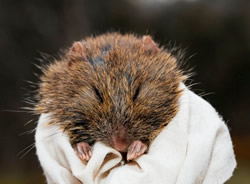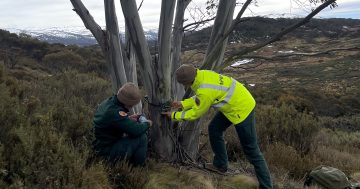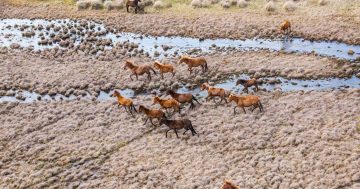 Last summer’s bushfires have raised fresh concerns for the long-term survival of the chubby-cheeked Broad-toothed Rat, which, according to Museums Victoria, had already disappeared from over half the sites where it was found prior to 1990.
Last summer’s bushfires have raised fresh concerns for the long-term survival of the chubby-cheeked Broad-toothed Rat, which, according to Museums Victoria, had already disappeared from over half the sites where it was found prior to 1990.
The Museums said the rats’ disappearance from 53 per cent of the places it was previously found in was linked to climate change, but now the species’ last stronghold had been devastated by the bushfires.
“Research from Museums Victoria, published in CSIRO Publishing’s Wildlife Research journal earlier this year, highlights an alarming decline in the distribution of the Broad-toothed Rat, linked to the effects of climate change restricting their habitat over the last several decades,” Museums Victoria said.
“When the catastrophic bushfires of 2019-2020 swept through the Victorian High Country, many of the few remaining strongholds for this species were burnt,” it said.
“Known by Australia’s First Peoples as Tooarrana, the Broad-toothed Rat ( Mastacomys fuscus) is a native species of rodent found only in south-Eastern Australia.”
It said they were described as shy and gentle, with a cute chubby-cheeked complexion and sweet-natured personalities.
Museums Victoria said that as part of Victoria’s Bushfire Biodiversity Response and Early Recovery program, it would return to fire-ravished sites to find out how populations of the Broad-toothed Rat were faring.
Senior curator of mammals and lead researcher at Museums Victoria, Kevin Rowe said Broad-toothed Rats were unique among Australian rodents in that they fed almost exclusively on sedges and grasses, and lived only in cool and wet environments.
“If the current climate trend continues, we could see this species pushed further and further upwards, eventually disappearing from warmer, low-elevation areas,” Dr Rowe said.
“Climate change poses a significant threat to the persistence of Broad-toothed Rats, and to many other Australian animals,” he said.










